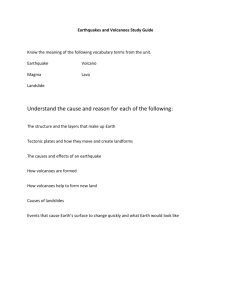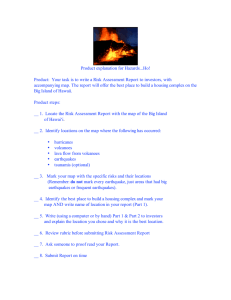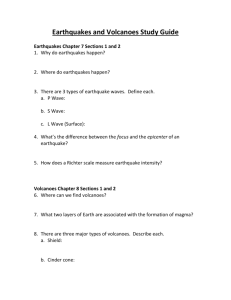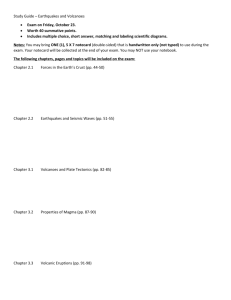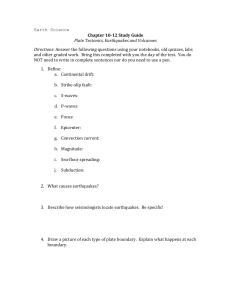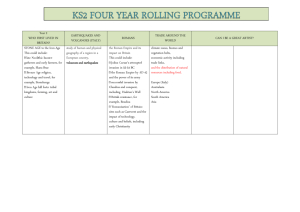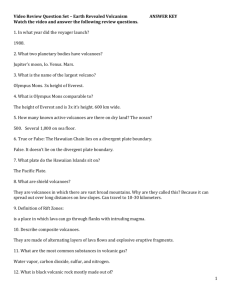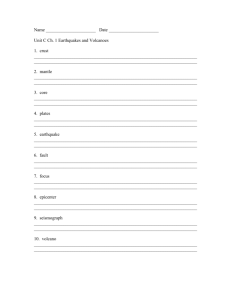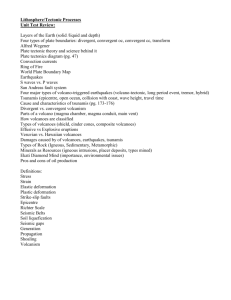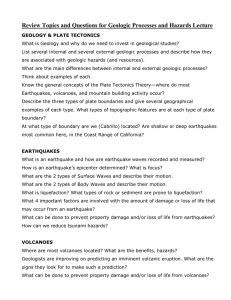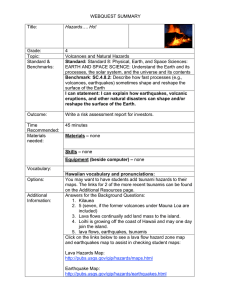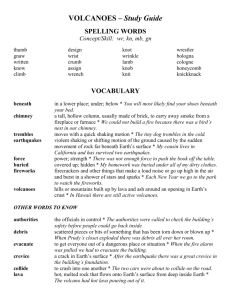9-weeks Test Thursday 3/12/09
advertisement
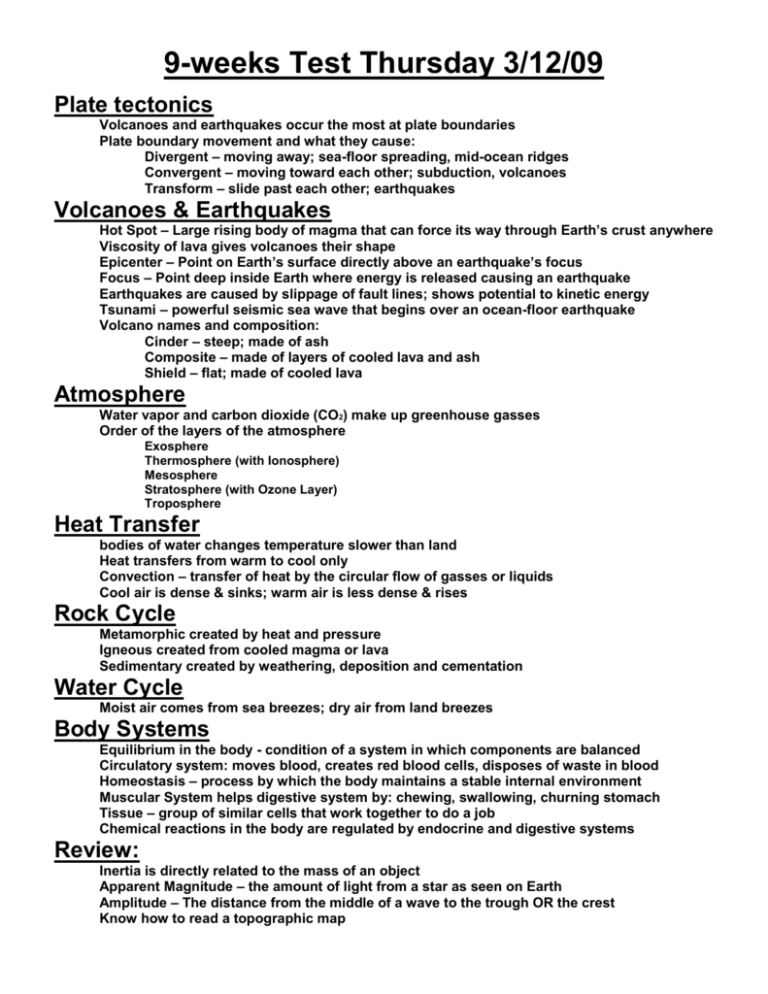
9-weeks Test Thursday 3/12/09 Plate tectonics Volcanoes and earthquakes occur the most at plate boundaries Plate boundary movement and what they cause: Divergent – moving away; sea-floor spreading, mid-ocean ridges Convergent – moving toward each other; subduction, volcanoes Transform – slide past each other; earthquakes Volcanoes & Earthquakes Hot Spot – Large rising body of magma that can force its way through Earth’s crust anywhere Viscosity of lava gives volcanoes their shape Epicenter – Point on Earth’s surface directly above an earthquake’s focus Focus – Point deep inside Earth where energy is released causing an earthquake Earthquakes are caused by slippage of fault lines; shows potential to kinetic energy Tsunami – powerful seismic sea wave that begins over an ocean-floor earthquake Volcano names and composition: Cinder – steep; made of ash Composite – made of layers of cooled lava and ash Shield – flat; made of cooled lava Atmosphere Water vapor and carbon dioxide (CO2) make up greenhouse gasses Order of the layers of the atmosphere Exosphere Thermosphere (with Ionosphere) Mesosphere Stratosphere (with Ozone Layer) Troposphere Heat Transfer bodies of water changes temperature slower than land Heat transfers from warm to cool only Convection – transfer of heat by the circular flow of gasses or liquids Cool air is dense & sinks; warm air is less dense & rises Rock Cycle Metamorphic created by heat and pressure Igneous created from cooled magma or lava Sedimentary created by weathering, deposition and cementation Water Cycle Moist air comes from sea breezes; dry air from land breezes Body Systems Equilibrium in the body - condition of a system in which components are balanced Circulatory system: moves blood, creates red blood cells, disposes of waste in blood Homeostasis – process by which the body maintains a stable internal environment Muscular System helps digestive system by: chewing, swallowing, churning stomach Tissue – group of similar cells that work together to do a job Chemical reactions in the body are regulated by endocrine and digestive systems Review: Inertia is directly related to the mass of an object Apparent Magnitude – the amount of light from a star as seen on Earth Amplitude – The distance from the middle of a wave to the trough OR the crest Know how to read a topographic map
